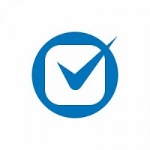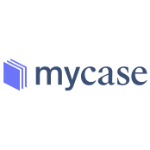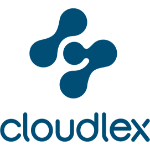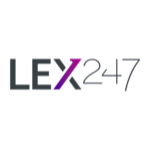List of Best Legal Practice Management Software
Showing 10 of 28 productsManage My Lawsuits is a software for lawyers and legal professionals designed to streamline and simplify the management of lawsuits. With its user-friendly interface features, Manage My Lawsuits is the go-to solution for maximizing efficiency and org...Read Manage My Lawsuits Reviews
Clio is a software designed specifically for legal professionals. With its user-friendly interface features, Clio streamlines the practice management processes, allowing lawyers to focus on what they do best - providing excellent legal services to th...Read Clio Reviews
PracticePanther is a legal practice management software designed to streamline your legal business and enhance your productivity. Say goodbye to the hassle of manual tasks and hello to efficiency with PracticePanther. Whether youre a solo practitione...Read PracticePanther Reviews
MyCase is a legal case management software that streamlines the entire process for lawyers and law firms. With its user-friendly interface and convenient features, MyCase simplifies and enhances the way legal professionals handle their cases. From or...Read MyCase Reviews
Litify is a legal software that is revolutionizing the way law firms and legal teams manage their cases. With its user-friendly interface technology, Litify streamlines common legal processes, improves efficiency, and allows for better communication...Read Litify Reviews
Zelican is a robust software that boasts a user-friendly interface and a contemporary design. As a cloud-based tool, it is fully equipped to handle all the operations of Law firms, Lawyers, and Attorneys. With its advanced capabilities, Zelican stre...Read Zelican Reviews
LEAP Legal is a top-of-the-line, innovative software designed specifically for legal professionals. With its user-friendly interface features, it simplifies and streamlines everyday tasks for lawyers, allowing them to spend more time on what matters...Read LEAP Legal Reviews
CloudLex is a cloud-based legal management system designed to simplify and streamline processes for law firms of all sizes. With its user-friendly interface and powerful features, CloudLex helps lawyers efficiently manage cases, organize documents, a...Read CloudLex Reviews
Actionstep is a robust legal practice management software that streamlines the daily tasks of lawyers and law firms. With its intuitive design and smart features, Actionstep enables legal professionals to efficiently manage cases, documents, and clie...Read Actionstep Reviews
LEX247 is a legal management software that streamlines your entire legal workflow. Say goodbye to paperwork and hello to increased efficiency, productivity and profitability. With LEX247, legal professionals can easily manage cases, documents, time t...Read LEX247 Reviews
- What Is Law Practice Management Software?
- Top Reasons Why Businesses Need Law Practice Management Software?
- What Are the Top Key Features of Law Practice Management Software?
- What Are the Top Benefits of Law Practice Management Software?
- What Are the Steps to Choose the Right Law Practice Management Software?
- What Are the Types of Law Practice Management Software for Different Industries?
- What Are the Technology Trends for Best Law Practice Management Software?
- What Are the Deployment Options for Law Practice Management Software?
What Is Law Practice Management Software?
Law Practice Management Software refers to a type of software specifically developed to assist law firms in effectively organizing and overseeing their day-to-day activities. This software typically encompasses a range of solutions aimed at managing several facets of a law firm's operations, including but not limited to document and case management, time and invoicing, accounting, and client relationship management.
These tools facilitate the efficient management of various duties within legal firms, including document organization, billable hours monitoring, expenditure recording, invoice creation, and client contact management.
Through the implementation of automation, law firms have the potential to decrease the amount of time and financial resources allocated towards administrative duties, all the while enhancing precision and safeguarding data integrity.
Legal practice software frequently offers features for project management, calendar, and task management, as well as secure document sharing with clients.
Consequently, this software possesses the capability to enhance operational efficiency and facilitate improved customer relationship management within legal firms. Law Practice Management Software ultimately aids law firms in enhancing their service delivery to clients by increasing efficiency and reducing costs.
Top Reasons Why Businesses Need Law Practice Management Software?
1. Facilitating the establishment of a secure system for the storage and retrieval of customer data.
2. One potential application of automation is the streamlining of practice-specific duties, such as the generation of legal papers and the management of financial accounts.
3. Enhancing the efficiency of activities related to billing and invoicing.
4. The rapid and precise generation of legal papers.
5. One of the essential tasks in the field of accounting is the efficient and precise generation of client engagement letters, accounting statements, and other standard papers.
6. Enhancing the exchange of information between legal practitioners and their clientele.
7. This feature offers enhanced management capabilities for overseeing workflow and monitoring task progress.
8. Enhancing resource use in the administration of customer information, papers, and communication.
9. The automated monitoring and recording of modifications and revisions in legal documents.
10. The process of acquiring and documenting customer information, financial transactions, and legal proceedings.
11. The precise and efficient computation of legal fees, costs, and expenses.
12. The production of reports to facilitate the examination of costs, fees, revenue, and other significant performance parameters.
13. The process of incorporating and overseeing client-facing technology in conjunction with back-end software.
14. One of the key objectives is to enhance communication among staff members and seamlessly integrate with shared storage and file systems.
15. Enabling the integration of customized software with various economic, accounting, finance, and practice management systems.
What Are the Top Key Features of Law Practice Management Software?
The top key features of Law Practice Management Software practice management systems are:
1. Document Management: This functionality facilitates convenient storage and retrieval of essential papers, while also offering a secure setting for safeguarding sensitive data.
2. Client Accounting: This facilitates the seamless management of client and firm accounts by legal firms, hence enhancing client billing, collections, and payment processes.
3. Case Management: This functionality facilitates the monitoring of cases throughout their entire lifecycle, hence optimizing workflow processes and enhancing operational effectiveness.
4. Calendar Management: This functionality facilitates the efficient management of the firm's day-to-day operations through the provision of reminders and the ability to monitor and organize events, meetings, and deadlines.
5. Time Tracking: This functionality enables organizations to precisely monitor billable hours and expenses, hence facilitating the optimization of the invoicing and payment procedures.
6. Collaboration: This functionality facilitates seamless collaboration among all constituents of a legal organization, enabling simultaneous, synchronized work on shared documents.
7. Reporting & Analytics: This functionality facilitates the seamless production of precise reports and data analysis, hence enhancing performance and enabling decision-making based on empirical evidence.
8. Automation: This functionality streamlines and automates legal procedures, including the creation of documents, administration of tasks, and filing of documents.
What Are the Top Benefits of Law Practice Management Software?
1. Streamlined Workflows: Top Law Practice Management Software practice management software plays a crucial role in optimizing operational processes, facilitating the efficient retrieval and modification of pertinent legal documents and information by attorneys. Enhancing job efficiency and accuracy is facilitated by this approach.
2. Automation of Manual Tasks: Legal practice management systems streamline and automate several manual operations, including the generation and monitoring of invoices, to enhance time efficiency for legal professionals.
3. Improved Client Management: This software greatly facilitates the maintenance of client relationships. The system consolidates crucial data into a singular database, facilitating expedient and precise retrieval of information by legal professionals on behalf of their clients.
4. Effective Case Management: This program facilitates enhanced case management for legal professionals. This technology enables legal professionals to monitor the advancement of legal matters, conduct efficient document searches, engage in collaborative efforts with colleagues, and conveniently store and oversee case-related data.
5. Digital Filing: Online legal practice management software facilitates the electronic storage of documents, hence obviating the necessity for physical file maintenance. This facilitates the accessibility and dissemination of information among attorneys and their professional peers.
6. Improved Security: It is designed to guarantee the security and compliance of all stored information by relevant rules.
7. Time Tracking and Reporting: Law practice management software effectively monitors and provides detailed records of the time allocated to each case, so enabling attorneys to invoice clients with precision.
8. Improved Financial Management: The aforementioned software facilitates attorneys in efficiently monitoring accounts receivable and payable, alongside managing billing and payments. Enhancing financial management practices within legal firms leads to improved outcomes.
9. Client Collaboration: This software facilitates efficient collaboration and communication between lawyers and their clients. Clients are allowed to contribute input and pertinent material, including but not limited to documents, photographs, and audio recordings.
10. Improved Client Communication: This program facilitates efficient communication between attorneys and their clients. This software facilitates the preservation of legal discussions and the efficient organization of client databases.
What Are the Steps to Choose the Right Law Practice Management Software?
1. Identify your practice needs: The initial stage in selecting suitable law practice management software entails the identification of the specific requirements of one's practice. What specific technological requirements are necessary for effectively managing a practice? What categories of business procedures are currently implemented within your organization? It is necessary to deliberate over the essential software characteristics and capabilities that are indispensable for one's professional practice.
2. Research the solutions: After determining the desired features and capabilities, commence the process of exploring the various best law Practice Management Software options that are currently accessible in the industry. It is imperative to evaluate the advantages and constraints associated with each product, while also engaging in a comprehensive analysis of evaluations and conducting thorough background research.
3. Compare price: The cost is a crucial determinant in the selection process of an appropriate legal practice management system that aligns with one's requirements. One should take into account the financial implications of the software, including both the initial cost and the subsequent long-term expenses associated with training, modification, and installation.
4. Request a free trial: Before acquiring software, it is imperative to ascertain its suitability as a solution for one's professional needs. It is advisable to utilize free trials and demos if offered, to gain a comprehensive understanding of the software's functionality and determine its compatibility with your specific requirements.
5. Ask for recommendations: It is advisable to proactively seek recommendations from individuals within your professional field. Which system is utilized and for what reasons? Seek comments and guidance from relevant stakeholders to ensure that the selected solution is optimal for your practice.
6. Choose a user-friendly system: In the context of law practice management software, the paramount factor is the ease of use for the user. It is advisable to select a system that possesses a user-friendly interface and is easily comprehensible, so minimizing the need for extensive training and setup procedures, thus optimizing time utilization. Ensure that the system possesses a level of simplicity that facilitates rapid comprehension and adoption by both yourself and your team.
What Are the Types of Law Practice Management Software for Different Industries?
Law Practice Management Software is designed to meet the unique requirements of various segments within the legal profession. As such, it can be categorized into the following distinct groups.
1. Commercial Law: The aforementioned solutions have been specifically developed to assist legal professionals specializing in business law in effectively handling various corporate legal affairs, including but not limited to mergers and acquisitions, compliance, contract management, licensing, intellectual property, and real estate.
2. Family Law: The aforementioned software solutions are specifically tailored to cater to the needs of family law practices, providing attorneys with effective tools to efficiently handle cases and facilitate contact with their clients. Typical characteristics encompass the automation of documents, management of client data, scheduling, invoicing, and recording of case notes.
3. Litigation Law: These technologies offer the requisite legal resources for the efficient management of litigation proceedings. Typical characteristics encompass the management of case filings, depositions, file reviews, case histories, document tracking, and additional functionalities.
4. Public Interest Law: The proposed solutions aim to assist public interest lawyers in effectively managing various aspects of nonprofit legal matters, including difficulties related to grants, donor management, compliance, reporting, client case notes, and events.
5. Immigration Law: The proposed solutions aim to assist public interest lawyers in effectively managing various aspects of nonprofit legal matters, including difficulties related to grants, donor management, compliance, reporting, client case notes, and events.
6. Private Practice Law: The aforementioned solutions are independent tools designed to assist private practice lawyers in managing client intake, online form assessment, billing, scheduling, document management, and other related tasks.
What Are the Technology Trends for Best Law Practice Management Software?
The technology trends for best law practice management software are:
1. Automation: The utilization of legal practice management software for the automation of legal operations is experiencing a growing trend. This technological advancement facilitates enhanced operational effectiveness and financial benefits through the automation of monotonous and recurring processes.
2. Cloud-Based Solutions: Cloud-based solutions provide lawyers with the capability to remotely access client data and documents from any device, thereby enhancing accessibility and ensuring the security of data.
3. Machine Learning: The utilization of machine learning techniques has proven to be important in augmenting data analysis and facilitating document automation, hence optimizing the efficiency of the practice management process.
4. Integration: The integration of law practice management software with various tools and software, including accounting and billing software, document management software, and legal research software, is becoming more prevalent. This feature enables legal professionals to effectively oversee and handle all facets of their legal practice through a unified platform.
5. Artificial Intelligence: The utilization of artificial intelligence (AI) has been employed in the automation of legal tasks, including the drafting and evaluation of documents. The efficacy and dependability of AI-based applications are progressively escalating, rendering them indispensable instruments for legal professionals.
What Are the Deployment Options for Law Practice Management Software?
The available deployment choices for legal practice management software are contingent upon the specific software package under consideration. However, in general, there exist three primary deployment possibilities: cloud-based, on-site, and mobile.
Cloud-based solutions enable law firms to conveniently access their software from any location, at any time, using any internet-connected device. This solution provides more flexibility and convenience for law firms, as it eliminates the need for hardware installation and server maintenance. The responsibility of maintenance is assumed by the program provider.
On-site solutions refer to software packages that are acquired through downloading and installed on a single computer or server located within the premises of the legal firm's office. The responsibility for maintenance, including software updates and backups, lies solely with the legal firm.
Mobile solutions enable users to conveniently access their case information and practice resources using their smartphone or tablet devices. The option of remote work is gaining popularity due to its ability to enable lawyers to maintain productivity regardless of their location.
Software firms have the choice to provide a combination of the three deployment options or offer a single option as an independent solution. Conducting a comprehensive comparison of different software packages and their respective charges is a crucial step to undertake prior to reaching a selection.










